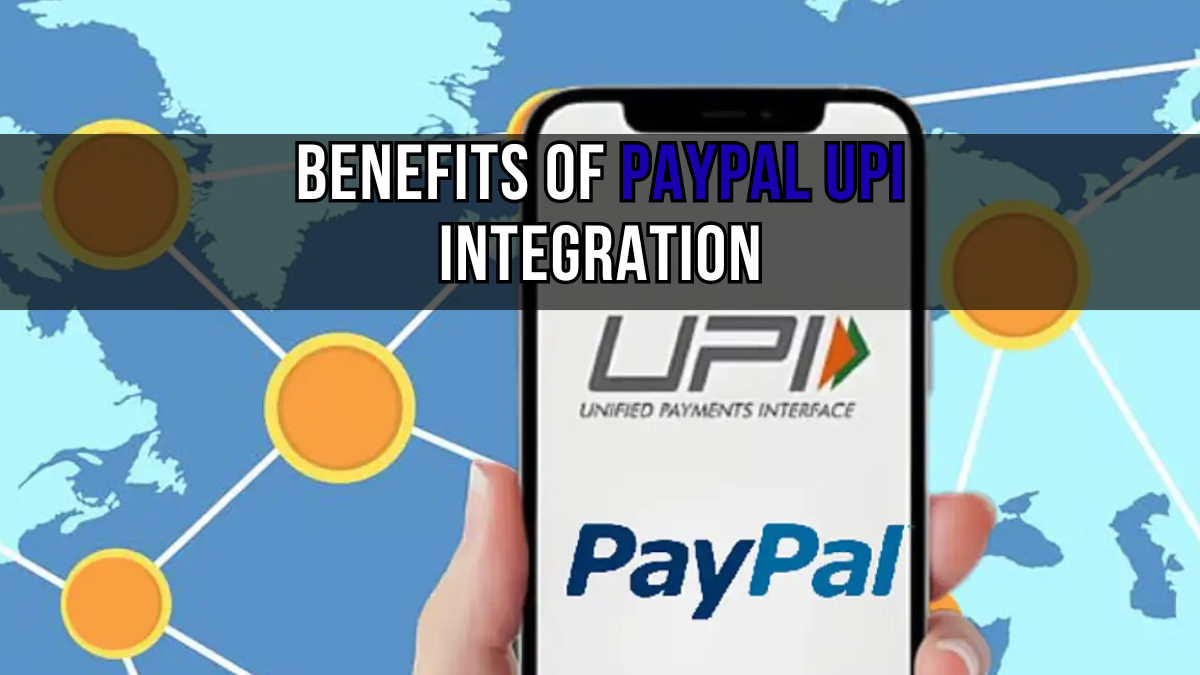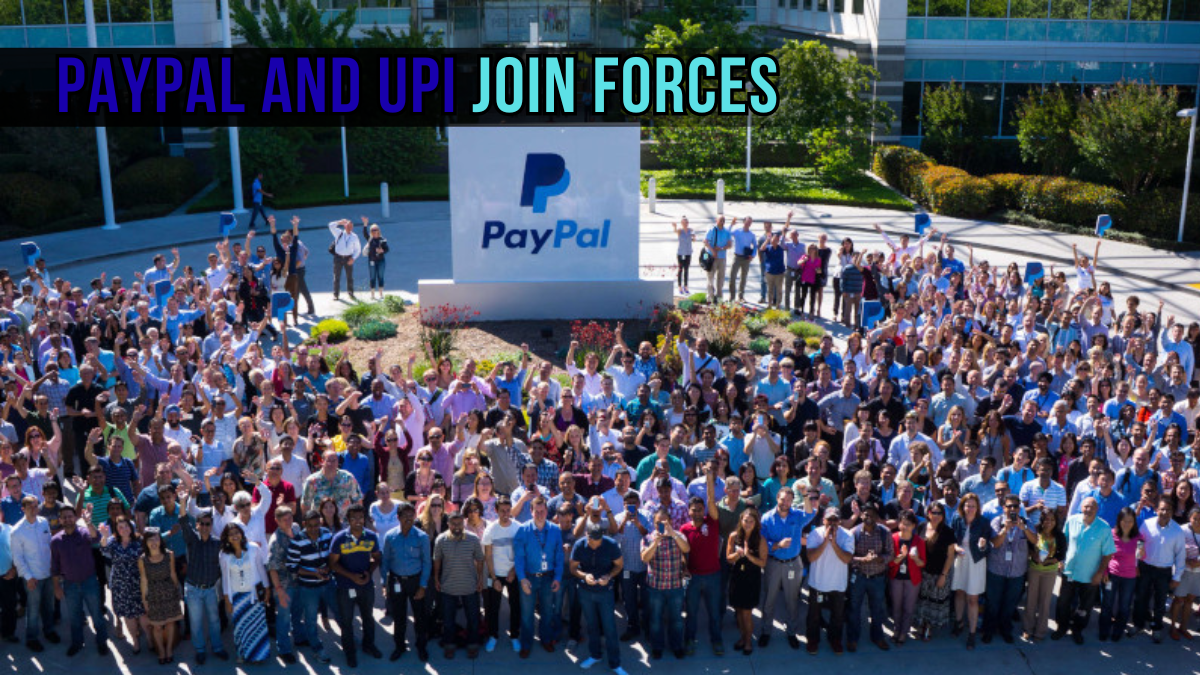International payments just got simpler for millions of Indians. PayPal’s upcoming integration with India’s Unified Payments Interface (UPI) promises to eliminate the hassle of credit cards for overseas transactions, opening doors to seamless global commerce.
This groundbreaking partnership between PayPal and the National Payments Corporation of India (NPCI) represents more than just a technical upgrade. It’s a bridge connecting India’s thriving digital payment ecosystem with the global marketplace, making international transactions as simple as splitting a dinner bill with friends.

For Indian users who have grown accustomed to UPI’s instant, secure payments, this integration means no more fumbling with credit card details or worrying about international transaction fees eating into their budgets. Whether you’re a freelancer receiving payments from overseas clients, an online shopper purchasing from international retailers, or a business owner expanding globally, this change could transform how you handle cross-border payments.
How PayPal UPI Integration Will Work
The mechanics behind this integration are surprisingly straightforward. Once live, Indian users will see UPI as a payment option when using PayPal on any international platform or website.
Here’s the step-by-step process:
Step 1: Select UPI Payment
When checking out on an international website that accepts PayPal, users will now see UPI as an available payment method alongside traditional options.
Step 2: Enter UPI ID
Users simply enter their UPI ID (like yourname@paytm or yourname@googlepay) instead of typing lengthy credit card numbers and expiry dates.
Step 3: Identity Verification
PayPal’s security system verifies the user’s identity through its established protocols, ensuring the transaction is legitimate.
Step 4: UPI App Notification
The user receives a payment request notification on their preferred UPI app whether that’s Google Pay, PhonePe, Paytm, or any other UPI-enabled application.
Step 5: Authorize Payment
Users authorize the payment using their UPI PIN, the same six-digit code they use for domestic transactions.
Step 6: Instant Processing
The payment processes immediately, with funds reaching the international merchant in real-time.
This seamless flow eliminates multiple pain points that have traditionally made international payments cumbersome for Indian consumers.
Benefits of PayPal UPI Integration
No Credit Card Required
Many Indians, particularly younger consumers and those in smaller cities, don’t own international credit cards. This integration removes that barrier entirely, allowing anyone with a bank account and UPI access to participate in the global digital economy.
Enhanced Security
The combination of PayPal’s world-class security infrastructure and UPI’s multi-factor authentication creates a robust defense against fraud. Every transaction requires both UPI PIN verification and OTP confirmation, making unauthorized payments nearly impossible.
Familiar User Experience
Indians won’t need to learn new payment processes. The UPI interface remains identical to what they use daily, reducing friction and increasing adoption rates.
Real-Time Transactions
Unlike traditional international transfers that can take several days, UPI-PayPal transactions process instantly, providing immediate confirmation to both buyers and sellers.
Cost Efficiency
While specific fee structures haven’t been announced, UPI’s typically low transaction costs could make international payments more affordable than traditional credit card processing.
Who Benefits Most from This Integration

Freelancers and Digital Workers
India’s massive freelancer population from software developers to graphic designers often struggles with receiving international payments. PayPal’s UPI integration could streamline their income collection, eliminating the need for expensive foreign currency accounts or complex wire transfers.
Small Business Owners
E-commerce entrepreneurs selling to international markets can now offer their overseas customers a payment method that connects directly to their familiar banking infrastructure, potentially increasing conversion rates and reducing payment abandonment.
Online Shoppers
Indian consumers shopping on international websites will find checkout processes faster and more intuitive, potentially boosting cross-border e-commerce activity.
Students and Professionals
Those paying for international services online courses, software subscriptions, or professional tools can now handle these payments without maintaining separate credit cards for international use.
Technical Implementation and Security
The integration leverages existing infrastructure from both sides. PayPal’s payment processing capabilities combine with NPCI’s UPI rails, creating a hybrid system that maintains the strengths of both platforms.
Security measures include:
- Multi-factor Authentication: UPI PIN plus OTP verification
- Real-time Fraud Monitoring: PayPal’s AI-powered fraud detection
- Regulatory Compliance: Adherence to both RBI guidelines and international financial regulations
- Encrypted Transactions: End-to-end encryption for all payment data
Potential Challenges and Considerations
Currency Conversion
Users should understand how currency conversion will work, including exchange rates and any associated fees. Transparency in this area will be crucial for adoption.
Transaction Limits
UPI currently has daily transaction limits that may affect larger international purchases or business payments. How these limits apply to international transactions remains to be clarified.
Merchant Adoption
The success of this integration depends partly on international merchants actively promoting UPI as a payment option to their Indian customers.
Regulatory Approval
While the partnership has been announced, final regulatory approvals from relevant authorities may still be pending.
The Broader Impact on Digital Payments
This integration signals a broader trend toward interoperability in global payment systems. As digital payment methods proliferate worldwide, consumers expect their preferred payment methods to work across borders.
For India, this development reinforces the country’s position as a leader in digital payment innovation. UPI’s success domestically processing over 10 billion transactions monthly demonstrates the appetite for convenient, secure payment solutions.
The partnership also highlights how established international players like PayPal are adapting to local preferences rather than imposing global standards, a strategy that could define the next phase of fintech evolution.
Preparing for the Launch
While specific launch dates haven’t been confirmed, Indian users can prepare by:
- Ensuring UPI Setup: Make sure your UPI ID is active and linked to your primary bank account
- Understanding PayPal: Familiarize yourself with PayPal’s interface if you haven’t used it before
- Monitoring Updates: Stay informed about official announcements regarding fees, limits, and availability
- Security Awareness: Review your UPI security settings and ensure your PIN is secure
Transforming Cross-Border Commerce
PayPal’s UPI integration represents more than a technical achievement, it’s a democratization of international commerce for Indian consumers. By removing traditional barriers like credit card requirements and complex verification processes, this partnership could unlock new opportunities for millions of Indians to participate in the global digital economy.
As the integration rolls out, early adopters will likely be freelancers, online shoppers, and small businesses eager to simplify their international transactions. Their experiences will shape how quickly this new payment method gains mainstream acceptance.
The success of this integration could also pave the way for similar partnerships between other international payment platforms and India’s digital payment infrastructure, further cementing India’s role as a global fintech innovator.
Keep an eye on official announcements from both PayPal and NPCI for launch dates, fee structures, and additional features that will define this new era of international payments.
FAQs: Frequently Asked Questions
1. What is UPI?
Unified Payments Interface (UPI) is a real-time payment system developed by the National Payments Corporation of India (NPCI) that enables users to link multiple bank accounts and make instant transactions using their smartphone.
2. How does PayPal’s integration with UPI benefit users?
This integration allows Indian users to make seamless international payments without needing a credit card. It enhances convenience and accessibility for cross-border transactions.
3. Is there a limit on transactions through PayPal using UPI?
Transaction limits, if any, will be determined by the guidelines set by NPCI and PayPal. It is recommended to review official announcements for specifics.
4. Is this service available for all Indian PayPal users?
The service is expected to roll out gradually. Availability may vary depending on the user’s location and banking partner.
5. Are there any additional fees for using UPI with PayPal?
Fee structures for UPI transactions through PayPal will be outlined in their official announcements. Users should keep an eye out for detailed updates.
6. How secure is this payment method?
UPI is known for its robust security features, including two-factor authentication. Additionally, PayPal incorporates advanced security measures to ensure safe and reliable international payments.
7. When will the integration officially launch?
The exact launch date has not yet been announced. Users are encouraged to monitor updates from both NPCI and PayPal for further information.
For More Information Click HERE
